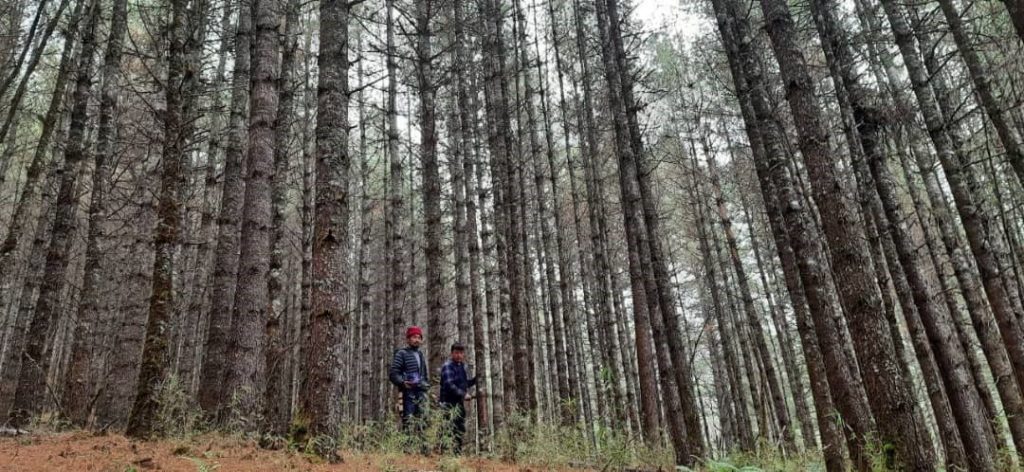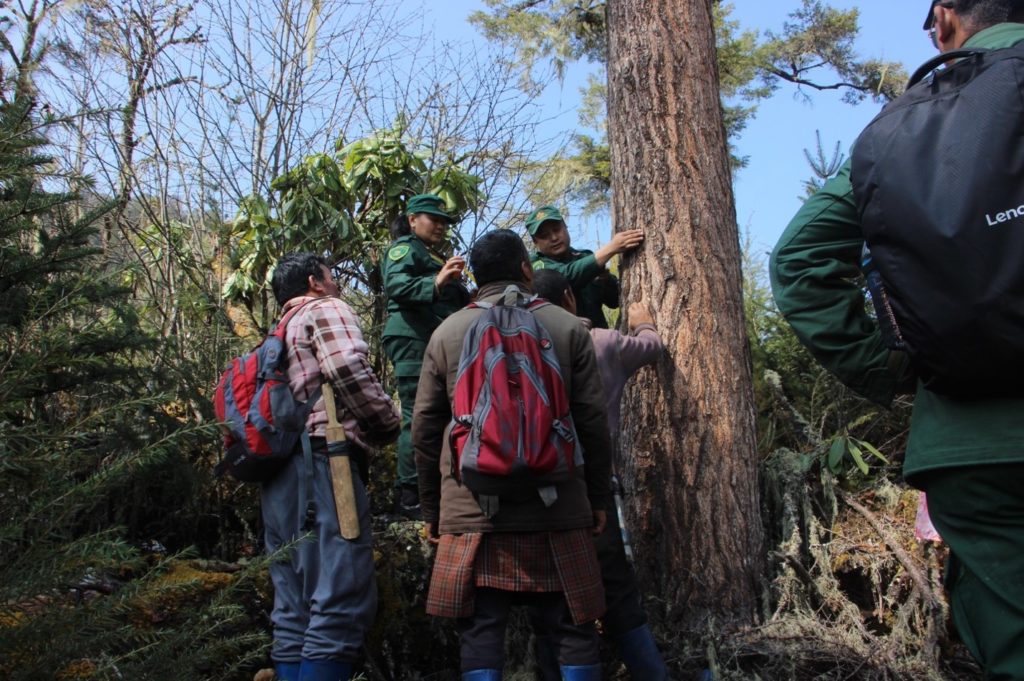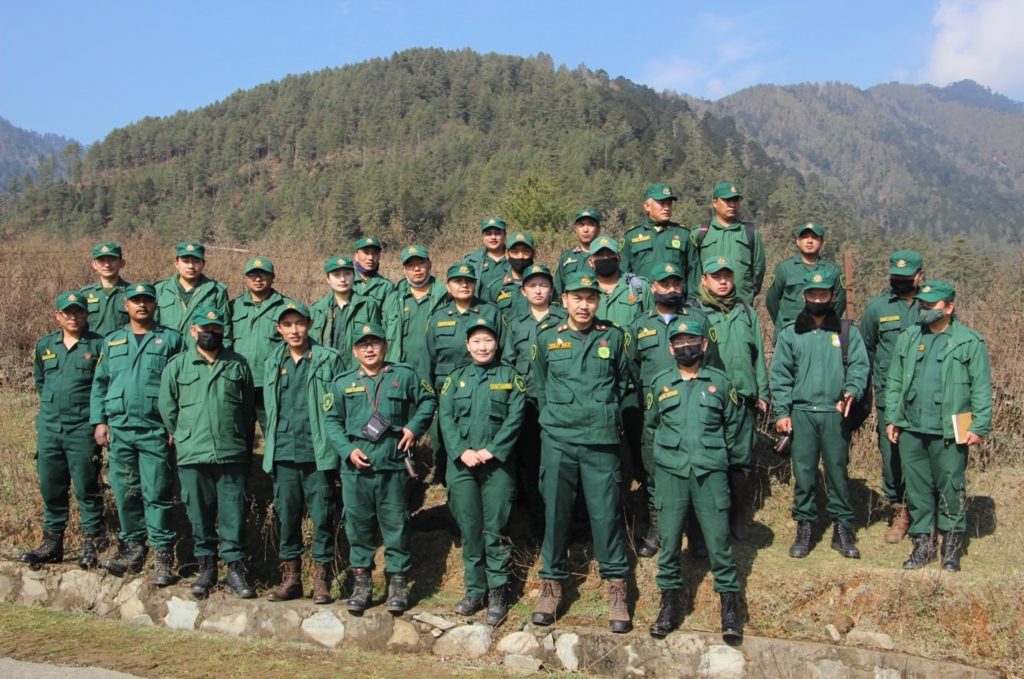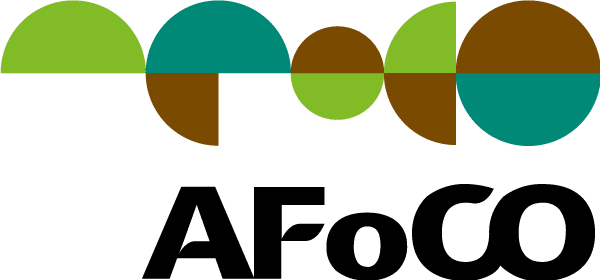Background
Community Forestry program in Bhutan was initiated in line with the vision of The Fourth King, Jigme Singye Wangchuck. In 1979, The Great Fourth said “the participation of the local community is the key to conservation and utilization of forest resources” (Wangchuk, T. 2011 in RGoB, 2004). This proclamation is considered as foundation-stone for the Community Forestry program in Bhutan.
Community Forestry program legally came into effect after enactment of Forest and Nature Conservation Act which was passed by the National Assembly. And In 1995, Her Royal Highness, Ashi Sonam Choden Wangchuck stated that community forestry: “builds on existing local knowledge and traditional forest management systems, and develops means to devolve management responsibility for forest areas to the people that actually depend on the forest for their sustenance” (Wangchuk, T. 2011 in RGoB, 2004). Since then, the community forestry program was made as national program starting from the 10th Five Year Plan (2008-2013).
Community Forest management is now considered as one of the sustainable forest management regimes of Bhutan. In fact, community forest management can be proven as one of the best forest management regimes in Bhutan.
With all the enabling policy and regulations in place, as of September 2021, Bhutan has established 834 Community Forests measuring a total of 108,357.399 hectares involving 34,520 rural households registered as Community Forest Management Group members.
The Project Intervention
The AFoCO Project on “Sustainable Community-Based Enterprises for Improved Livelihood in Bhutan” supports Community Forest Management Groups and Non-Wood Forest Product (NWFP) Management Groups in 12 districts out of 20 in Bhutan. These districts are selected based on the potentiality and issues of the community groups and since no donor agencies have reached their support in these districts. Community Forests and non-wood forest product programs are widely accepted by rural communities. These programs can create livelihood opportunities for rural communities and their participation in sustainable management of forests & biodiversity conservation.
The project support is geared towards interventions to increase commercialization of wood and non-wood goods & services from the community-based forest resource management (CBFRM) groups which need to be enhanced and further promoted. This will enable communities and small/medium scale rural enterprises to realize the economic benefits from sustainable management of the forests and natural resources.
With this AFoCO project support, we intend to build the capacities of the forestry field staff and the community members. With the necessary capacities and collaboration amongst groups, CBFRM groups will be able to produce and market high-quality forest products, thus generating income and contributing to poverty alleviation at the national level.
With the project support, the Department of Forests and Park Services (DoFPS) will be able to establish sustainable management schemes of CBFRM, improve information sharing and promote value addition. Further, it will strengthen the marketing of forest produce, networking, and capacity building for stakeholders, which will all be designed to support the rural communities to increase their income from CBFRM on a sustainable basis.
Resource Assessment in Community Forests
Sustainable management and utilization of community forests resources depends on many parameters, one of which includes the capacity of the community forest management group (CFMG) members and the Foresters who day to day provide technical expertise to the group. Capacity development and/or capacity building became one of the priorities in community forestry development in Bhutan.

Social Forestry and Extension Division (SFED) focuses on the capacity development of CFMG members, foresters (who work in the Territorial, Park and Headquarters). Many capacity-building initiatives for the CFMG members were decentralized in the Division/Parks and are carried out with financial supports from the Royal Government and different donor agencies including AFoCO. Capacity development for the foresters working in the Territorial Divisions and Parks are implemented by the SFED with financial support from AFoCO Project. Capacity development has to be a continuous process as many new foresters are engaged in community forestry development. Moreover, due to changes in time and human resources, community forest management is becoming more and more complex, therefore demanding different capacity development needs. One of the main capacity-building activities for foresters in the field is on Resource Assessment in Community Forest as it now includes the latest technologies and methodologies. In the process, SFED, with financial support from AFoCO Project, planned to conduct training on Resource Assessment in Community Forest in collaboration with Ugyen Wangchuck Institute for Environmental Conservation and Research (WUICER) and Forest Resource Management Division (FRMD).
The main objective of the training is to train all the Foresters who are engaged in Community Forest Management Planning and equip them in using the Community Forestry Manual, 2018. Expectations of each participant were also chalked out so as to make necessary arrangements in fulfilling them.

The training was designed to include two days’ theory in class, field practical sessions in groups for two days, and another day in the class to compile, analyze data collected during the field practical. The methodologies used during the training were of participatory approaches which include group work, open discussions, presentations, and question and answer sessions. Daily evaluations were also conducted to find out improvements needed and to incorporate suggestions in the next day’s session.
The training was conducted in one of the Community Forests in Wangdi Phodrang district where the community forest management plan had already reached its expiry date. This is “killing two birds with one stone” where the participants will get practical training and the CF resource assessment need not be conducted separately when it is time for the plan revision after completion of its 10-year management cycle.
Led by three resource persons, the training was attended by 27 participants including five female forestry staff from the Field Offices. The other participants from the “Red Zone” area in the southern part of the country were not able to join due to protocols laid for COVID-19 situations.
Such training should be conducted annually and regularly to reach out to as many forestry staff involved in community forestry as possible. This is mainly due to regular staff transfers; some field offices experience staff shortages and some staff are not equipped with knowledge and skills on community forest resource assessment. Moreover, the GIS part in the training needs to be continuously imparted as the skills is based on frequent touch and constant fiddling with the software.
Conclusion
Regular and continuous capacity building for both the Foresters and Community Forest Management Group members is of paramount importance so as to enhance skills in sustainable management of our forests and natural resources, enhance rural communities’ income and enhance in skills for good governance, thereby maintaining the existing good group cohesiveness.
With the project support, the Department of Forests and Park Services (DoFPS) will be able to establish sustainable management schemes of Community Based Forest Resource Management (CBFRM), improve information sharing, and promote value addition. Further, it will strengthen the marketing of forest produce, networking and capacity building for stakeholders, which will all be designed to support the rural communities to increase their income from CBFRM on a sustainable basis.
The AFoCO project with the Social Forestry and Extension Division under the Department of Forests and Park Services in Bhutan has several plans on capacity building for Foresters and rural people on different topics like; good governance, silviculture, resource assessment, GIS among others. All those training needs to be regularly and continuously imparted.

Contributed by Tashi Wangchuk, Project Coordinator for AFoCO/017/2020

